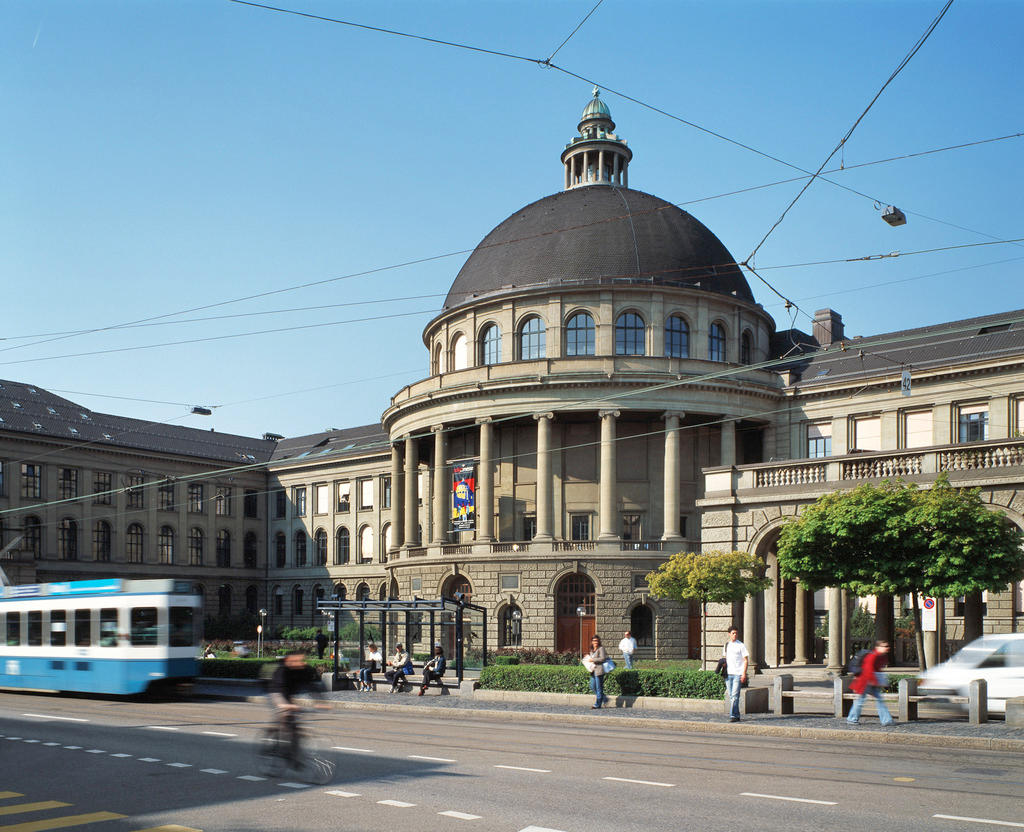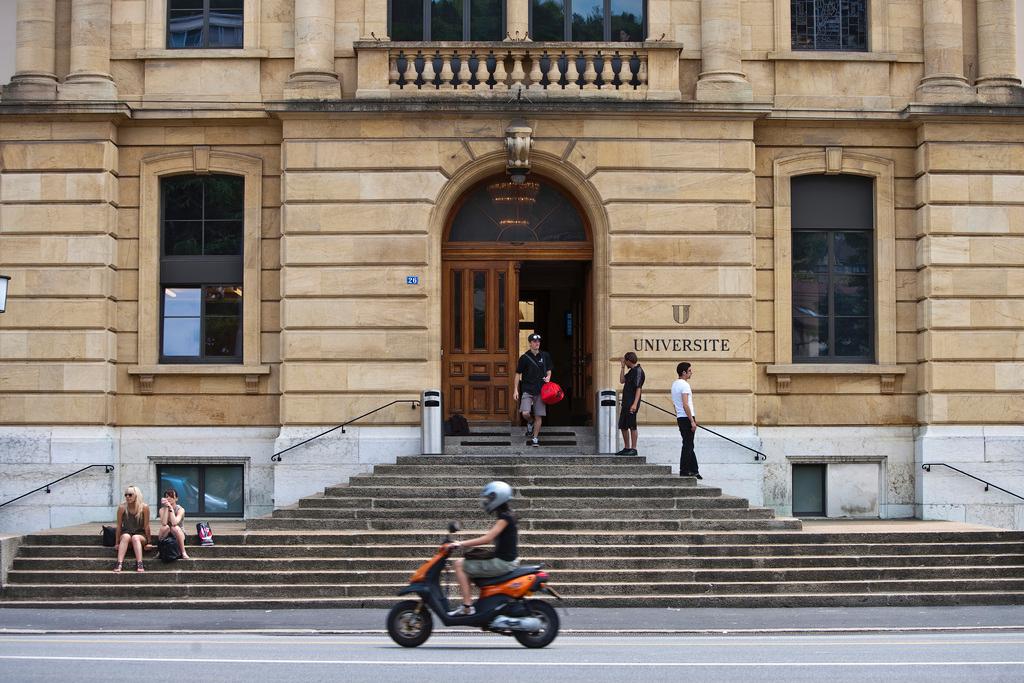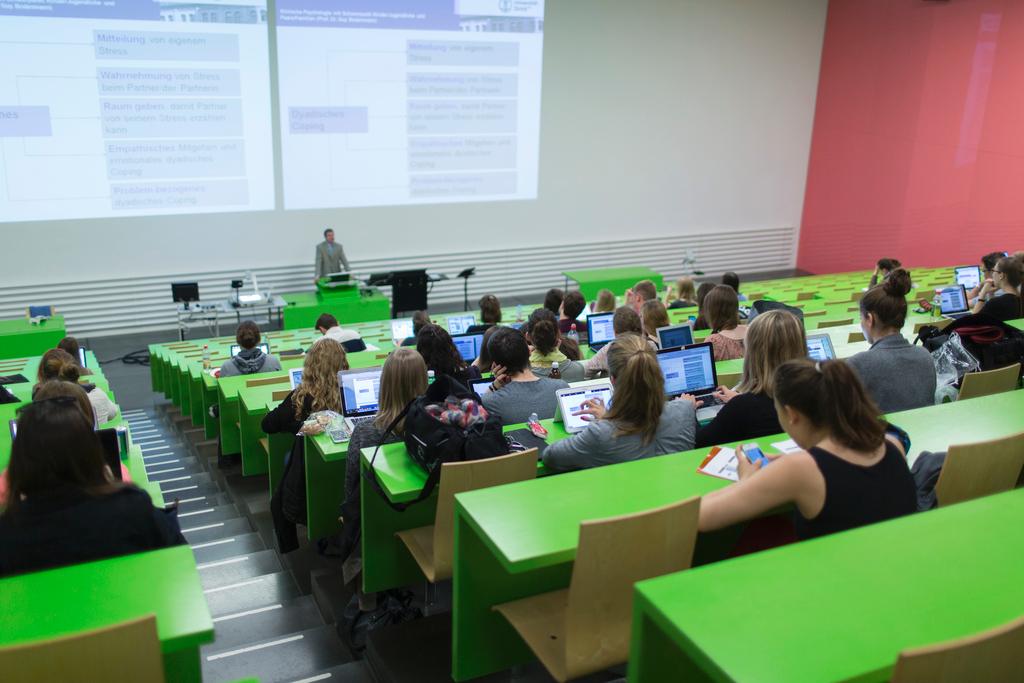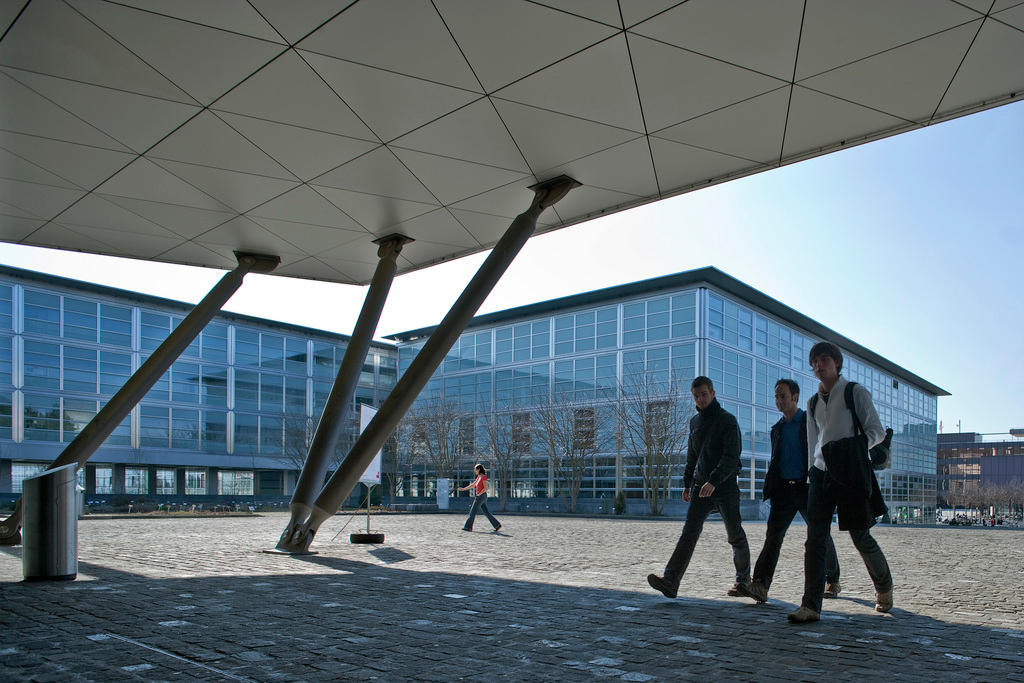ETH Zurich remains top university in continental Europe

Switzerland’s two federal technology institutes still rank among the top 20 in the world, according to the QS World University Rankings for 2016. ETH Zurich rose one place to eighth and the Swiss Federal Institute of Technology Lausanne (EPFL) remained 14th.
ETHZ is the highest-ranked university in continental Europe – four British universities came in the top ten – in the annual rankingsExternal link, published by London-based education company Quacquarelli Symonds on Tuesday.
Other Swiss institutions among the 916 universities from 81 countries are the universities of Zurich (ranked 80), Geneva (95), Lausanne (138), Basel (141), Bern (181) and St Gallen (288).
The United States dominates the list with 48 institutions in the top 200 – including the top three: the Massachusetts Institute of Technology (MIT), Stanford and Harvard – ahead of Britain (30), the Netherlands (12), Germany (11), Canada and Australia (nine), Japan (eight), China (seven), and France, Sweden and Hong Kong (five).
“ETH Zurich is a leading player in research and education in Switzerland and worldwide,” the QS report said. “All degree programs provide a solid scientific foundation combined with outstanding all-round skills, equipping ETH graduates with the abilities and flexibility needed for a career in industry, business or the public sector.”

More
Higher education admission
The authors said EPFL, which was founded in 1853, had “evolved into a top-ranked research and teaching institution that attracts some of the best intellects in the world. Nearly 15,000 people – students, professors, scientists and administrative staff, from around 120 nationalities – share this campus in its idyllic spot overlooking Lake Geneva and the Alps.”
The QS rankings are one of four used by the State Secretariat for Education, Research and Innovation (SERI) and swissuniversities for their overview of international university rankingsExternal link. The others are the Academic Ranking of World Universities (ARWU), also known as the Shanghai RankingExternal link, the Times Higher Education World University RankingsExternal link and the CWTS Leiden RankingExternal link.
Importance of investment
While MIT claimed the top spot for the fifth consecutive year, Western European institutions consistently suffered drops, particularly in Britain and Germany, the authors noted.
Russia and South Korea had risen significantly (the latter has 16 top-500 universities compared with 13 last year) and China continued to progress, with Tsinghua (24th) rising to its highest-ever position.
“This year’s rankings imply that levels of investment are determining who progresses and who regresses,” said Ben Sowter, head of research at QS.
“Institutions in countries that provide high levels of targeted funding, whether from endowments or from the public purse, are rising. On the other hand, some Western European nations making or proposing cuts to public research spending are losing ground to their US and Asian counterparts.”
QS World University Rankings
The QS World University Rankings is an annual league table of the top universities in the world.
The QS World University Rankings are based on four key pillars: research, teaching, employability and internationalisation. The methodology consists of six indicators: academic reputation (40%), employer reputation (10%), faculty student ratio (20%), citations per faculty (20%), international students (5%) and international faculty (5%).
74,651 academics and 37,781 employers contributed to the rankings through the QS global surveys, the largest of their kind. QS analysed 10.3 million research papers and 66.3 million citations. Over 3,800 institutions were considered for inclusion and 916 ranked.
(Source: QS)

In compliance with the JTI standards
More: SWI swissinfo.ch certified by the Journalism Trust Initiative











You can find an overview of ongoing debates with our journalists here . Please join us!
If you want to start a conversation about a topic raised in this article or want to report factual errors, email us at english@swissinfo.ch.